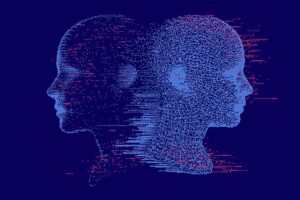There is growing evidence that bipolar disorder (BPD) and schizophrenia share a significant connection, with people with BPD also at an increased risk for developing schizophrenia. Schizophrenia is a serious mental illness that affects how a person thinks, feels, and behaves. It can lead to problems with social and occupational functioning, as well as suicidal thoughts and actions.
While there is still much to learn about the relationship between BPD and schizophrenia, this connection may help us better understand the causes of these disorders and identify potential treatment options.
Contents
- 1 What is Bipolar Disorder?
- 2 What Is Schizophrenia?
- 3 The Connection Between Bipolar Disorder and Schizophrenia
- 4 Genetics and Pathophysiology of Bipolar Disorder and Schizophrenia
- 5 Clinical Manifestations of Bipolar Disorder and Schizophrenia
- 6 Treatment of Bipolar Disorder and Schizophrenia
- 7 Conclusion
What is Bipolar Disorder?

Bipolar disorder is a mental health condition in which a person has two or more episodes of mania, a severe mood swing from extreme highs to extreme lows. A person with bipolar disorder may also experience periods of depression.
Bipolar disorder is also known as manic-depression, bipolar I disorder, cyclothymia, and major depressive disorder. Sometimes there are also periods of mania and depression that are not related to one another.
What Is Schizophrenia?
Schizophrenia is a mental disorder that affects how a person thinks, feels, and acts. It is an illness that typically first appears in late adolescence or early adulthood, but it can also occur at any age. Symptoms may range from mild to severe and can be present for a long period (lasting years or even decades).
Schizophrenia is divided into two main categories: schizophrenia spectrum disorders (SSD) and schizoaffective disorder (SAD). SSDs include schizophrenia, schizoaffective disorder, and bipolar disorder. SAD includes both unipolar and bipolar disorders, but the schizoaffective disorder is the only SSD that also features symptoms of psychosis (a disconnection from reality).
The exact cause of schizophrenia is unknown, but it seems to be caused by a combination of genetic and environmental factors. Some people are more likely to develop schizophrenia than others, but there isn’t necessarily a clear family history of the disorder. Schizophrenia often begins with changes in thoughts or behaviors, which may gradually progress over time.
There is no cure for schizophrenia, but treatment options available include medication, therapy, lifestyle changes, and supportive services. It’s important to remember that schizophrenia doesn’t just affect the person
The Connection Between Bipolar Disorder and Schizophrenia

Schizophrenia is a serious mental disorder that causes delusional beliefs, disorganized speech, and abnormal thoughts. It is also characterized by negative symptoms such as social withdrawal and lack of motivation.
Bipolar disorder, on the other hand, is a condition that causes problems with mood, energy, and behavior. People with bipolar disorder often experience cycles of highs and lows in their moods, which can be very disruptive to their lives.
There is a lot of research linking bipolar disorder and schizophrenia, and it appears that the two disorders share some common features. One study found that people with schizophrenia are more likely to have a history of bipolar disorder than people who don’t have schizophrenia. Additionally, people with bipolar disorder are more likely to have symptoms of schizophrenia such as delusions and hallucinations.
The connection between these two disorders suggests that there might be a common cause behind both conditions. However, it is still unclear exactly what that cause is. Also, there are no current treatments that work well for both bipolar disorder and schizophrenia.
Genetics and Pathophysiology of Bipolar Disorder and Schizophrenia
When it comes to bipolar disorder and schizophrenia, there is much yet to be learned. However, researchers have made some significant connections between the two disorders.
Bipolar disorder is a mental illness characterized by alternating periods of high (mania) and low (depression) energy. Mania is marked by increased energy and activities, while depression is characterized by decreased energy and reduced activity levels.
Schizophrenia is a severe brain disorder that affects about 1 percent of the population. Schizophrenia is usually diagnosed during early adulthood, but it can also be diagnosed in children and adolescents. Also, Schizophrenia is characterized by positive symptoms such as hallucinations (seeing things that are not there), delusions (false beliefs), and disorganized thinking. Negative symptoms are also common, such as a lack of interest in social activities.
While the cause of bipolar disorder and schizophrenia remains unknown, research suggests that genetic factors may play a role in both disorders. Studies have found that people with bipolar disorder tend to have a family history of mental illness, while people with schizophrenia tend to have a family history of psychotic disorders (a group of disorders that includes bipolar disorder and schizophrenia). Additionally, studies have shown that people who develop schizophrenia often experience alterations in their brain structure and function. This suggests that schizophrenia may be caused, in part, by changes in the brain that occur before the onset of the disorder.
Clinical Manifestations of Bipolar Disorder and Schizophrenia

In bipolar disorder and schizophrenia, there is a strong connection between the two disorders. Bipolar disorder is characterized by episodes of mania and depression, while schizophrenia is characterized by episodes of psychosis. Manic symptoms in bipolar disorder can include inflated self-esteem, feelings of grandiosity, racing thoughts, and a decreased need for sleep. Depressive symptoms in bipolar disorder can include feelings of sadness, emptiness, hopelessness, and lack of interest in activities that were once enjoyed. The symptoms of schizophrenia can be similar to those of bipolar disorder, but they may also include hallucinations and delusions.
Both bipolar disorder and schizophrenia can cause social and occupational impairment. In addition, both disorders are associated with a high rate of suicide.
There are also many similarities between the two disorders in terms of genetic factors. Studies have shown that both bipolar disorder and schizophrenia are associated with a particular gene, known as the dopamine D2 receptor gene. This gene is responsible for the production of dopamine, a neurotransmitter that plays a role in mood regulation.
Treatment of Bipolar Disorder and Schizophrenia
The treatment of bipolar disorder and schizophrenia is largely the same. Both disorders require comprehensive treatment that takes into account the individual’s symptoms and history. Treatment may include medication, therapy, or a combination of both.
Medication for bipolar disorder and schizophrenia may include anti-depressants, anti-psychotics, or mood stabilizers. Therapy may involve cognitive behavioral therapy (CBT) or interpersonal therapy (IPT). A combination of these treatments may be most effective in treating these disorders.
Medications
One of the most common treatments for bipolar disorder and schizophrenia is medication. Medications can help to control symptoms and improve the quality of life for individuals with these disorders.
Anti-psychotics are medications that are used to treat schizophrenia. They work by reducing the symptoms of psychosis, including hallucinations, delusions, and negative thoughts. Anti-psychotics are also known to improve social and occupational functioning.
Anti-depressants are medications that are used to treat bipolar disorder. They work by reducing the symptoms of depression, including feelings of sadness, hopelessness, and fatigue. Anti-depressants may also improve mood stability and energy levels.
Mood stabilizers are medications that are used to treat bipolar disorder and schizophrenia. Mood stabilizers work by preventing episodes of mania or hypomania from becoming severe.
Medications may be effective in treating bipolar disorder and schizophrenia, but they must be taken regularly and as prescribed by a doctor. If medication is not effective, other treatments may be recommended.
Therapy

Cognitive behavioral therapy (CBT) is a type of therapy that helps people change their thoughts and behaviors. CBT can help to improve outcomes for individuals with bipolar disorder and schizophrenia.
IP is a type of therapy that focuses on the relationships between people. I can help to improve outcomes for individuals with bipolar disorder and schizophrenia.
Therapy may help treat bipolar disorder and schizophrenia, but it cannot cure these disorders. Treatment goals include improving symptoms, reducing risk factors, and restoring balance in the person’s life. Therapy may require several sessions over weeks or months. It is important to find a therapist who will work well with you and who understands your disorder.
Support Groups

An important part of treatment for bipolar disorder and schizophrenia is support from friends and family. Support groups offer a place for people with these disorders to share their experiences and connect with others who understand what they are going through.
Support groups can help improve outcomes for individuals with bipolar disorder and schizophrenia. Group therapy may provide a sense of community and support that is not available in individual therapy.
Support groups are available in many communities. If you are interested in finding a group, contact your local mental health center or psychiatric hospital.
Self-Care
Sometimes is helpful to take care of oneself to improve symptoms and outcomes for bipolar disorder and schizophrenia. This may include exercise, healthy eating, and stress management techniques.
Exercise can help to improve mood stability and energy levels. Healthy eating can help to control weight and reduce the risk of developing diabetes or other chronic illnesses. Stress management techniques can help to reduce the symptoms of anxiety and depression.
Self-care is important in treating bipolar disorder and schizophrenia. It can help to improve symptoms, reduce risk factors, and restore balance in the person’s life.
Conclusion
There is a connection between bipolar and schizophrenia, which has been researched for many years now. Many people with bipolar disorder also have schizophrenia and vice versa. The link between the two disorders is not always clear-cut, but it does appear that there may be some kind of biochemical connection at work. It is still not fully understood what causes either disorder, but it appears that there are some common factors involved. If you are worried about your mental health or if you know someone who suffers from either bipolar or schizophrenia, it might be worth talking to your doctor about the possibility of connecting the two disorders.
Hope this article was of help to you! If you are suffering from mental health disorders, you may seek help from Therapy Mantra. We have a team of highly trained and experienced therapists who can provide you with the tools and skills necessary for overcoming mental health disorders. Contact us today to schedule an online therapy or download our free Android or iOS app for more information.


